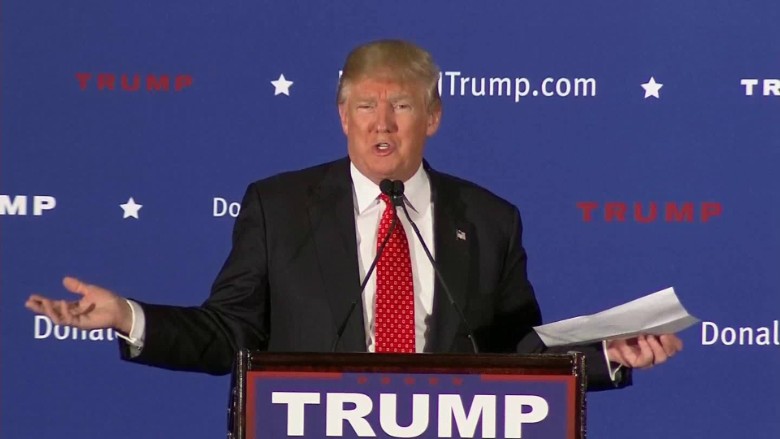
Donald Trump struggled to answer questions Monday when asked to provide specifics on his plan to open libel laws if elected president, a policy proposal he's made several times during his campaign.
During an on-the-record interview with The Washington Post editorial board on Monday, Trump was repeatedly grilled about his promise to open up libel laws in order to make it easier to sue news organizations.
"What presidential powers and executive actions would you take to open up the libel laws?" he was asked by Fred Ryan, the publisher and CEO of the Post.
"Okay, look, I've had stories written about me -- by your newspaper and by others -- that are so false, that are written with such hatred -- I'm not a bad person. I'm just doing my thing -- I'm, you know, running, I want to do something that's good. It's not an easy thing to do. I had a nice life until I did this, you know," Trump said.
Related: Behind Trump's 'job interview' with Alicia Watkins
He criticized the Post for what he said was only covering the bad business deals he's made while ignoring the good ones.
"But how would you fix that?" Ryan pressed. "You've said that you would open up the libel laws."
Trump responded by praising Hulk Hogan's recent lawsuit against Gawker, which resulted in a $140 million award to Hogan, but he added, "for the most part I think libel laws almost don't exist in this country."
"I just think that if a paper writes something wrong — media, when I say paper I'm talking about media. I think that they can do a retraction if they're wrong. They should at least try to get it right," Trump explained. "And if they don't do a retraction, they should, they should you know have a form of a trial. I don't want to impede free press, by the way. The last thing I would want to do is that."
Ryan pressed again: "Would you expand, for example, prior restraints against publications?"
Related: Univision's Jorge Ramos 'still waiting' on Trump interview
"No, I would just say this: All I want is fairness," Trump replied. "So unfair. I have stories and you have no recourse, you have no recourse whatsoever because the laws are really impotent."
Current libel laws require a plaintiff to prove that a news organization knowingly published false information with malicious intent, so Ryan asked Trump if he would lower that bar.
"Would you weaken that? Would you require less than malice for news organizations?" he asked.
Trump replied, "I would make it so that when someone writes incorrectly, yeah, I think I would get a little bit away from malice without having to get too totally away. Look, I think many of the stories about me are written badly. I don't know if it's malice because the people don't know me."
After several more minutes, Trump concluded with this: "I want to make it more fair from the side where I am, because things are said that are libelous, things are said about me that are so egregious and so wrong, and right now according to the libel laws I can do almost nothing about it because I'm a well-known person you know, etc., etc."
Trump first pledged to open up libel laws last month.
"We're going to open up those libel laws so when The New York Times writes a hit piece, which is a total disgrace, or when the Washington Post, which is there for other reasons, writes a hit piece, we can sue them and win money instead of having no chance of winning because they're totally protected," he said during a rally in Fort Worth, Texas, in late February. "We're going to open up libel laws and we're going to have people sue you like you've never got sued before."
Those remarks immediately drew criticism from journalists, who accused the Republican frontrunner of wanting to gut the First Amendment.
When CNNMoney asked the Trump campaign what the candidate would do, specifically, to follow through on that promise, and whether or not he would create a federal libel law, the Trump campaign demurred.
"Mr. Trump is asking for nothing but for people to tell the truth," a campaign spokesperson said.


